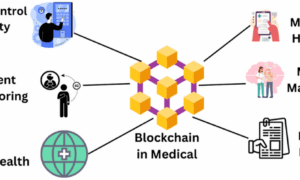When it comes to addiction recovery, you may have heard the term “holistic treatment,” but what precisely is it, and who might benefit from it? The medical definition of holistic therapy is a method of treating the whole person rather than simply a symptom of a disease. Holistic addiction rehabilitation does not dismiss traditional treatment methods but rather uses holistic therapy approaches in combination with standard addiction treatment methods. While mainstream addiction therapies such as Cognitive Behavioral Therapy and Medication Assisted Treatments are evidence-based treatments that are extensively used and approved in the area of addiction recovery, holistic treatments can assist reduce withdrawal symptoms, act as coping mechanisms to help avoid relapse, aid with mental health and emotional concerns, and improve mental, physical, and spiritual wellness as well as the overall quality of life.
Holistic therapies, when combined with medically supervised detox and mental health therapy, can help treat addictions of all severity levels. For many people, holistic solutions are the ideal complement to traditional treatment for overcoming some of life’s most challenging issues. Furthermore, these therapies can introduce patients to a number of new interests, routines, and coping abilities that they might utilize throughout their recovery.
What are Holistic Therapies?
Holistic addiction therapy is an approach that addresses the individual’s emotional, mental, and spiritual requirements in addition to the person’s physical health. People frequently confuse holistic care with non-medical treatment. This, however, is not always the case. Holistic care covers non-medical alternatives as well as clinically. So, while this sort of treatment employs both pharmaceutical and clinical approaches to addiction treatment, other holistic care methods attempt to support individuals in overcoming substance dependence without using prescription medicines.
A number of approaches can be used in holistic care, including individual conversation therapy, yoga, mindfulness meditation training, or massage treatment can be included. Each of these components is intended to assist anyone attempting to overcome drug abuse.
Is Holistic Treatment Evidence-Based?
Although holistic therapy is a developing trend in addiction recovery, many holistic therapies are not covered by insurance since there is not as much rigorous scientific proof to establish their efficacy. This is not to say that holistic therapy isn’t beneficial.
Research studies have shown many holistic therapies to be successful in providing advantages such as greater well-being, a stronger sense of self, and a reduction in depression or anxiety, among other things. However, most of the research in this discipline may be less credible than studies in more traditional westernized therapy techniques, such as Cognitive Behavioral Therapy or Dialectical Behavioral Therapy. Nonetheless, these medicines are still employed since incorporating them into traditional treatment has not resulted in any negative side effects.
Although some may regard holistic treatments competing with psychotherapy or pharmacological methods for recovery, when handled effectively by addiction specialists, all treatments can complement one another. For example, evidence-based addiction rehabilitation techniques such as Cognitive Behavioral Therapy and Medication Assisted Treatment can be combined with holistic therapies such as meditation, exercise, and nutritional therapy.
Types of Holistic Addiction Therapies
Holistic treatment clinics combine exercise, meditation, and nutrition to help patients overcome addiction.
In general, holistic therapies may include the following:
- Yoga and breathwork
- Guided meditation and mindfulness
- Acupuncture
- Massage therapy
- Spiritual therapy
- Nutritional therapy
- Routine exercise
- Biofeedback and Neurofeedback
- Tai chi
- Counseling
- Art, music, or writing therapy
- Herbal and Plant Medicines
- Reiki and Energy Healing
- Aromatherapy
- Hydrotherapy
- Shamanic healing
- Sound therapy
- Hypnotherapy
- Kirtan
- Nature Therapy
- Experiential Therapy
- Equine Therapy and other Animal Therapies
What addictions can Holistic Treatment be used for?
During therapy, a treatment professional focuses on providing you with a general sense of well-being while also assisting you in overcoming your addiction. Holistic therapy is effective at all phases of recovery, including detoxification, rehabilitation, and ongoing aftercare. When you enter holistic addiction treatment, you can receive relief from your withdrawal symptoms, cravings, mental illnesses, and physical discomfort.
Holistic treatment can be used to treat all sorts of addictions, including but not limited to alcohol, gaming, drugs, gambling, cryptocurrency, food, sex and porn addiction.
Benefits of Holistic Therapy
Holistic therapy can be beneficial in a variety of ways. Certain holistic therapies, such as acupuncture, can, for example, be advantageous when utilized during a detox since they can assist in minimizing the intensity of withdrawal symptoms. It can also aid in the improvement of sleep patterns and the reduction of anxiety.
Therapies like mindfulness, meditation, and hypnosis are employed to help generate a heightened level of awareness that may be used to avoid future relapses. For more insights into whether hypnotherapy is effective, check out www.betterhelp.com/advice/therapy/hypnotherapy-hoax-or-help/. Massage helps patients deal with persistent physical problems by relaxing the body and mind.
A holistic addiction treatment program must include exercise and nutrition. Many addicts ignore these areas and are unaware of how a proper diet and fitness routine might help them recover. Patients can learn the advantages of a nutritious diet through nutritional education and implement this knowledge when they return to an independent sober life.
Many rehabilitation providers also utilize mindful fitness. Tai chi and yoga, for example, can help you develop both the mind and the body. According to research, people who learn to practice either discipline will find it simpler to transition to a substance-free life following treatment.
How do I Find an Addiction Treatment Provider That Offers Holistic Treatment?
Many drug rehab centers integrate holistic therapy as part of their inpatient and outpatient treatment programs. The principle of holistic therapy — finding and maintaining balance in all aspects of life — is compatible with many addiction treatment methods.
Treatment centers may be located all around the country, and each patient’s rehabilitation plan is tailored to their specific needs. Examining the websites of addiction rehabilitation facilities to discover what services they provide is a smart place to start. You may want to seek out an addiction expert that offers consultations and treatment placement in order to identify the ideal addiction treatment program that suits your needs for more in-depth and hands-on help.
How Quit Addiction Now helps to find the Holistic Treatment Center?
Our directory of centers for addiction treatment programs goes beyond the typical healing methods offered at other neighboring treatment clinics. The approach is intended to help patients recover and nourish their whole selves. Our patients graduate from our comprehensive recovery programs stronger, healthier, and mentally equipped to embrace sobriety, accountability, and the pleasures that life has to offer.
Contact a treatment provider immediately to find a drug rehab center that offers holistic therapy and explore your treatment options to take the first step to health and happiness.

































